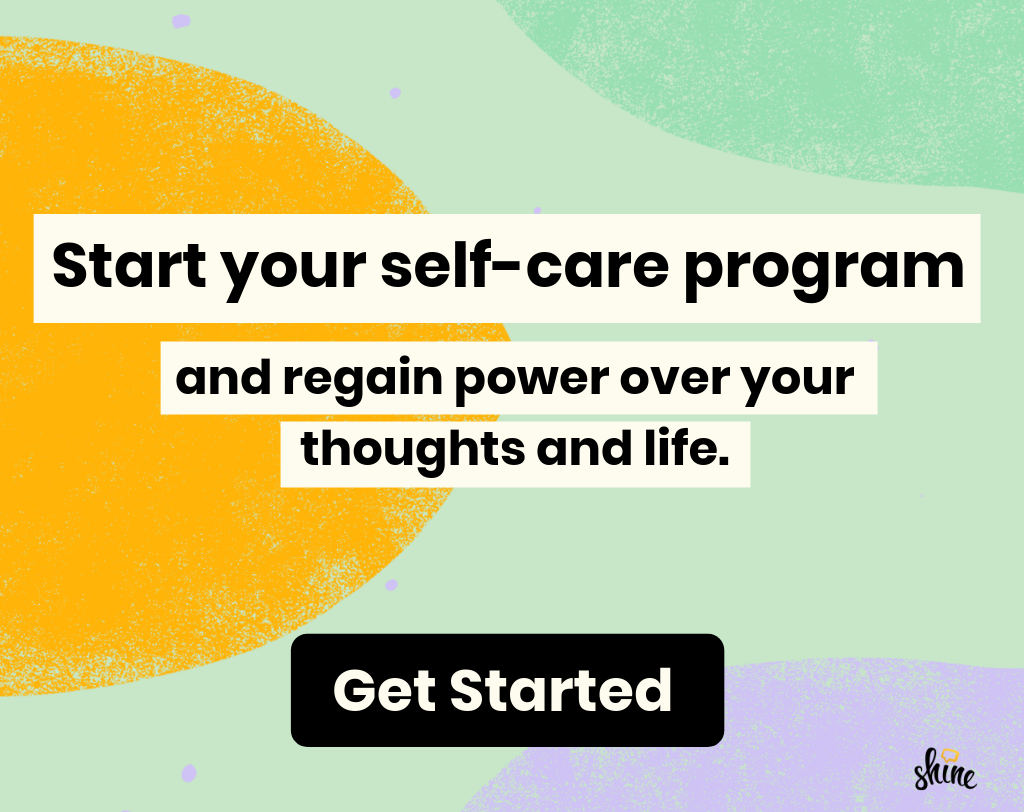How to Spot—and Deal With—a One-Sided Relationship
Have you ever been in a relationship with someone—say a friend, partner or family member—and felt as though you were putting in all of the effort? You know, the one who constantly initiates text messages, calls, or plans to see one another?
I’ve been there, and the mental exhaustion of trying to keep up with someone who doesn’t share the same level of interest as you isn’t fun. It can cause you to question yourself, act out of character, or create a rift in the relationship.
It’s important to take a step back when things begin feeling imbalanced and assess whether or not you’re in a one-sided relationship.
A one-sided relationship is when “one or both people feel an imbalance of energy, power, and resources that seems to last for some period of time,” Dr. Jenn Hardy, Ph.D., a psychologist who specializes in relationship issues, tells Shine.
Share today's article with someone who needs a boost in their relationships.
“It’s more than one weekend of helping a friend through a stressful move into a new apartment. It’s a pattern that has lasted for much of the relationship or for at least a few months," she says. "It may look like one person is giving a lot more time, emotional support, and even money to support the relationship than the other person is.”
The truth of the matter is that no relationship can sustain without the efforts of both involved. "It’s important to remember that it is a dynamic between two people,” Hardy says. “One person can’t create a relationship dynamic all by themselves.”
Yet despite our better judgment, one-sided relationships still take shape in our lives—sometimes without us even noticing.
"It’s important to remember that it is a dynamic between two people. One person can’t create a relationship dynamic all by themselves.”-Dr. Jenn Hardy Ph.D.
Hardy says there are 7 warning signs that can point to this toxic dynamic:
●︎ One of you initiates most of the conversation and does most of the work to plan the time you spend together.
●︎ One of you frequently cancels plans or delays responding to texts.
●︎ There seem to be two sets of rules. One person is excused for behavior that the other would be called out for.
●︎ The conversation generally focuses on only one of you. When the other person brings up issues or things happening in their life, they notice that the conversation either focuses back on their friend or simply ends.
●︎ You find yourself frequently feeling like the relationship is on the verge of falling apart. Or, you feel a lot of resentment toward this person because of mismatched expectations.
●︎ One of you tends to cancel plans so that the two of you can hang out, whereas the other person frequently cancels your plans with them because something better comes along. For example: You skip your book club meet-up to go to your partner’s favorite movie even though your partner missed your work event because of some other plans.
●︎ You find that most of your time together is spent doing things that one, but not both, of you like to do. For example: You don’t really like to play poker but end up at weekly poker games because your partner wants to go.
And although you may be nodding your head yes to more than one of these (I know I am), it’s important to keep in mind that there are some exceptions.
Not All Imbalanced Relationships Are a Cause For Panic
For instance, “If a friend is going through something particularly stressful—for example: a cancer diagnosis, a divorce, starting a new business—then it seems completely reasonable to find yourself giving (them) more support than you receive back,” Hardy says. “As (their) stress level goes back down, then hopefully your relationship will begin to feel more like the mutual give-and-take you’ve felt before.”
If this isn’t the case and you know that things have taken a turn in your relationship dynamic, the most effective thing you can do is speak up.
Try Initiating an Honest and Open Conversation
Talking things out is your best move. Sometimes, the other person isn't even aware of how their behavior affects you, or perhaps they view the status of your relationship a little differently.
It can be nerve-wracking, but by opening up, you’ll save yourself the time and stress that comes from sitting in uncertainty. Also, the conversation doesn’t have to be combative if you discuss how you feel with an open mind.
It can be nerve-wracking, but by opening up, you’ll save yourself the time and stress that comes from sitting in uncertainty.
“When you have your heart-to-heart, avoid airing grievances," Hardy says. "Focusing on a list of all of the ways that you feel neglected or taken advantage of will likely lead to the other person shutting down and feeling defensive."
She suggests being as specific as possible about the pattern you’ve noticed, your positive feelings towards the person, and open the floor for them to explain how they’ve perceived the situation. She gives the example:
“Maggie, I’ve loved our work lunches. You always have such a funny take on our boss. I’ve noticed that we really connect at work but never seem to be able to meet up on the weekends. I reach out for plans, but then you don’t seem to respond until it’s too late to hang out. I’m wondering if I want to be closer to you than you want to be with me. What has been your experience?”
You deserve to feel appreciated, and protecting your energy is what’s most important.
Pay close attention to how they react when you express yourself, and if it seems they aren’t receptive or resort to making you feel worse, it’s okay to step away.
“The best apology is changed behavior," Hardy says. "It’s one thing if a person apologizes and promises to be more active in the relationship. The truer test is how they are around you in the weeks after that conversation."
You aren’t obligated to stay in a situation that makes you feel less than or undervalued. You deserve to feel appreciated and protecting your energy is what’s most important. And although relationships don’t determine your worth, engaging in those that fill you up makes all the difference.
Read next: Undoing Unnecessary Emotional Labor: Are You Overworking in Your Relationships?
You're more than your stress and anxiety. Take back control using Shine's award-winning self-care program.

Shine is supported by members like you. When you buy through links on our site, we may earn an affiliate commission. See our affiliate disclosure for more info.



